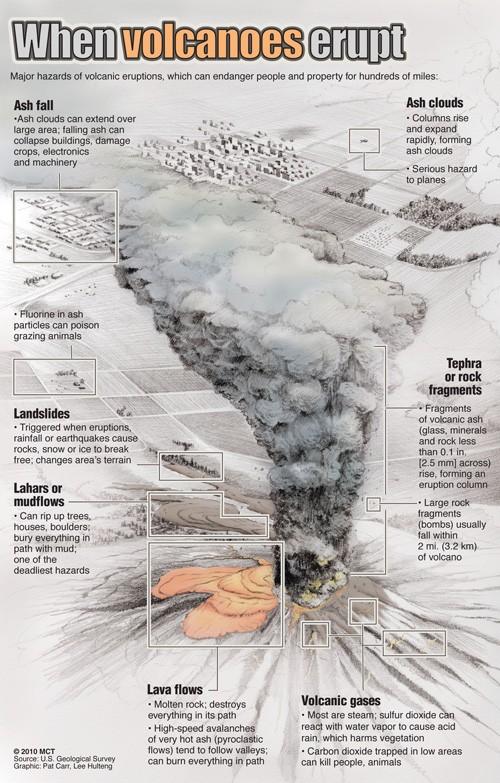NEW YORK — Mother Nature showed who was boss as a spreading ash cloud from a volcanic eruption in Iceland sent air travel to and from Europe into a spin Thursday, disrupting U.S. passenger and cargo flights on a scale not seen since Sept. 11.
The closing of major airports in London, Paris, Amsterdam and elsewhere had a domino effect here, forcing cancellation of at least 165 flights between the New York metropolitan area and key travel hubs in Northern Europe Thursday, with a similar number expected Friday, saidDavid Castelveter, a spokesman for Air Transport Association of America.
The cancellations represent about half the number of daily flights between Europe and the United States daily, he said.
The impact was far greater in Europe, where up to 6,000 flights were canceled and airspace in 10 countries — the United Kingdom, France, Ireland, Sweden, Norway, Belgium, Denmark, the Netherlands, Poland and Germany — was closed or partially closed, according to the International Air Transport Association.
Aviation experts and scientists were uncertain how long flight disruptions would continue, mainly because of uncertainty over wind direction.
“”It may be a few days or maybe a few months,”” associate professorIlya Bindeman, an expert on Icelandic volcanoes at the University of Oregon, said of the ash clouds being spewed. “”If it remains as violent as it is now, it could be a few months.””
Passengers at Kennedy Airport on Thursday discovered that they had to rethink travel plans as flights were canceled in growing numbers as the day progressed.
“”It’s not a nice way to start a vacation,”” saidClara Sinko, 57, of Pleasantville, N.Y., who was trying early Thursday to fly on American Airlines with her husband, Joe, to Vienna via London.
The couple rebooked on another airline for a flight to Madrid and then on to Vienna, a 30-hour trip.
The cause of the massive disruption was a new, forceful eruption from Eyjafjallajokull, a 5,467-foot-high volcano that had not blown its top since the early 19th century. The volcano erupted in March, subsided and then had a more dramatic blast in recent days, said Bindeman.
The fear among aviation authorities was that the ash, a mix of fragments of rock and dust, would wreck havoc on jet engines and damage the aircraft, possibly causing engines to fail. There have been three cases over the years of 747 passenger jets losing power in their engines because of volcanic ash, saidCarolyn Driedger, an expert on volcanoes at the U.S. Geological Survey’s Cascade Volcano Observatory in Washington state.
The ash cloud was expected to zigzag over northern Europe, Scandinavia, the British Isles and part of Russia, according to a map prepared by the International Air Transport Association.
Air cargo operations are also being affected by the disruption.
“”Airlines are going to have trouble moving cargo even if things free up tomorrow,”” saidJeremy Denton, an official with Air Menzies, an airfreight cargo company with offices in Queens, N.Y.. “”It is going to be very, very difficult to get freight to Europe this weekend.
“”We live in a day and age where people expect movement to Europe in 24 to 48 hours. When you start pushing that out, you have trouble with manufacturers; it will have a ripple affect,”” said Denton.
Meanwhile, stranded travelers at JFK expressed boredom or mused about where they wanted to be. “”I wish I was stranded in Paris,”” saidLeo Croteau, 68, of Arizona, who was waiting to fly to Tunisia, via Paris, for a safari vacation with his wife, Carole.
“”That would have been nice,”” said Carole.
———
(Matthew Chayescontributed to this report.)









